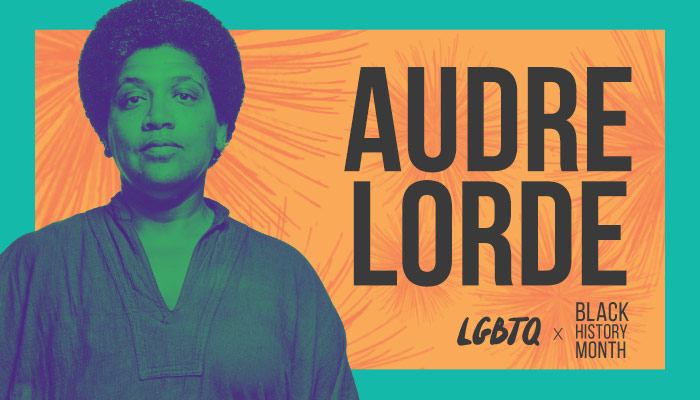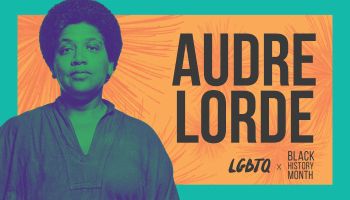
Source: iOne Creative / iOne Creative
During Black History Month, the narrative is typically constructed to highlight Black people who have achieved greatness. But it often leaves those who also identify as LGBTQ+ and gender nonconforming out of the conversation. This year, CASSIUS disrupts the mundane by highlighting Black queer and trans luminaries whose lives and work deserve celebration.
Audrey Geraldine Lorde was born in New York City to immigrant parents hailing from the West Indies. Those who have read her works would never believe that as a little girl, Lorde actually struggled with her words. The girl who would one day identify as “a Black feminist lesbian mother poet” didn’t speak until she was five.
But while speaking didn’t always come easy to her, poetry seemed to come naturally. Claiming poetry as her first language, as a child she’d often respond to questions in the form of a poem to avoid reprimands from adults about her stuttering. Ever the thoughtful child, as soon as she learned how to read and write, she nixed the “y” in her name to make it more even and symmetrical.
“Words had an energy and power and I came to respect that power early,” she wrote. “Pronouns, nouns, and verbs were citizens of different countries, who really got together to make a new world.”
Her first volume of poetry, The First Cities, was cited as “an innovative and refreshing rhetorical departure from the confrontational tone prevalent in African-American poetry at the time.” She continued to make history with her works as a prolific writer who was able to explore love, fear, and racial and sexual oppression and document them in a heartfelt way. Fighting sexual and racial marginalization, she dealt with a great deal of opposition to her radical views.
“My sexuality is part and parcel of who I am, and my poetry comes from the intersection of me and my worlds,” she once told an interviewer. “My work is not about obscenity, or even about sex. It is about revolution and change.”
Arguably one of the most radical ideas Lorde had were those about sexuality and the erotic. She defined lesbians to include strong women who center other women, even if they haven’t had sexual relationships with them. In her essay “The Uses of the Erotic: Erotic as Power” she expanded on the idea of erotica as “a particular feeling, knowledge, and understanding for those sisters with whom I have danced hard, played, or even fought.”
She even went as far as to say that all Black women are lesbians in a 1980 interview with Karla Hammond.
“Black women are lesbians because we were raised in the remnants of a basically matriarchal society no matter how oppressed we may have been by patriarchy,” she said to Hammond. “We’re all dykes, including our mommas. Let’s really start getting past the shibboleths and taboos. They don’t really matter. Being able to recognize that the function of poetry is to ennoble and empower us in a way that’s not separate from our living, that belief is African in origin.”
We lift up Audre Lorde in the spirit of self-definition and breaking down the constraints that attempt to define us, today and always.
















